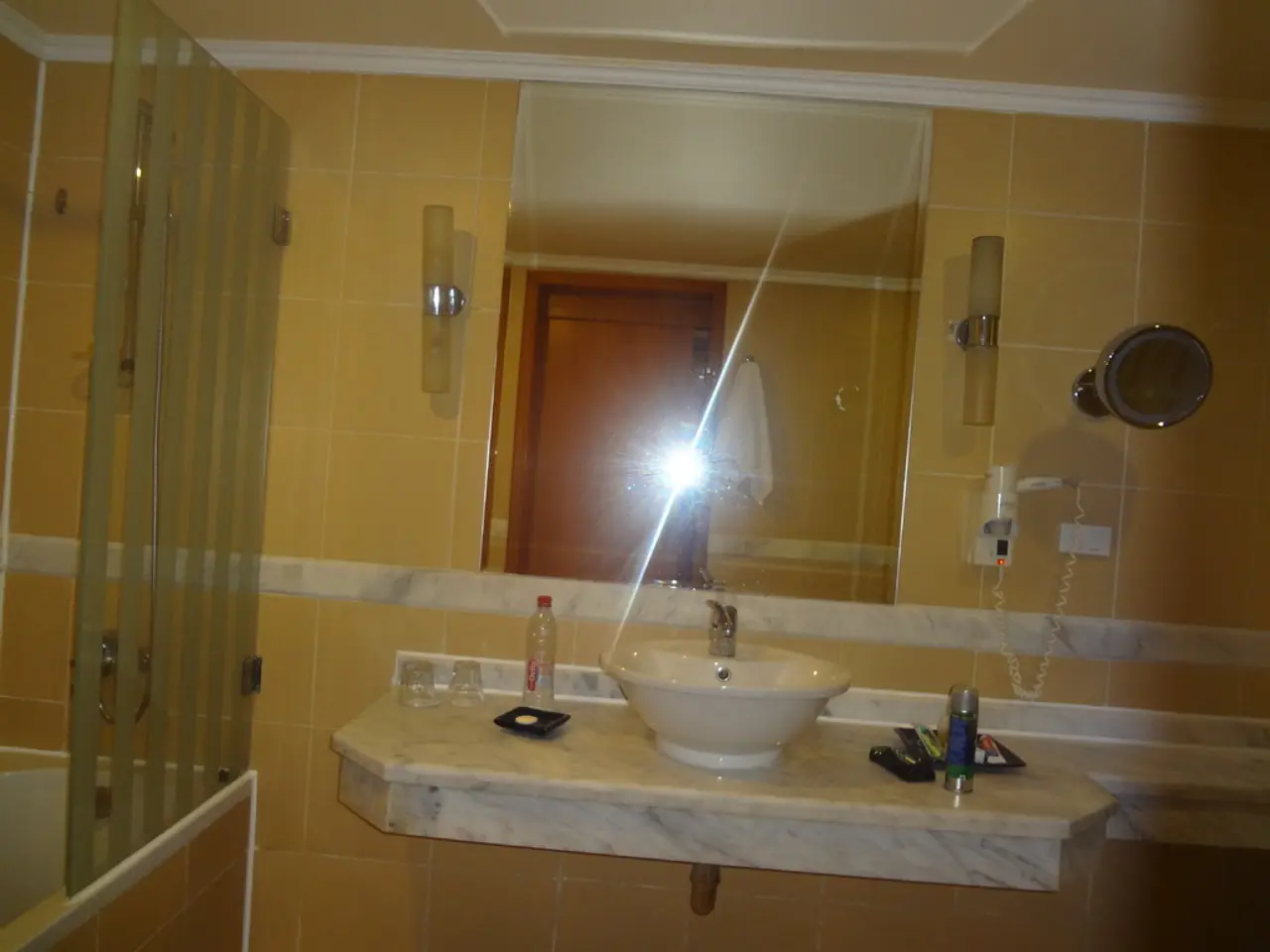Fanduel counters DraftKings' surcharge proposal, declines to impose additional fees
In a significant move, Flutter Entertainment (NYSE: FLUT) has announced that it has no plans to implement levies on winning sports bets in select high-tax states. This decision comes amidst the ongoing debate about taxes on sports betting operators, particularly in Illinois.
Peter Jackson, CEO of Flutter Entertainment, expressed his disapproval of the graduated tax scheme recently implemented in Illinois, stating that such a system is wrong as it punishes those who've invested the most to grow their businesses. Jackson fears that such a tax system could drive customers to offshore operators or potentially to onshore operators offering unregulated, untaxed prop parlays under the guise of sweepstakes.
This announcement was made on August 13, 2024, the same day Flutter Entertainment reported its second-quarter results. Notably, at the time of the announcement, shares of Flutter were higher by 10% in after-hours trading, while DraftKings was down 4%.
In contrast, DraftKings (NASDAQ: DKNG) previously announced it will charge a small surcharge on winning sports wagers in Illinois, New York, Pennsylvania, and Vermont starting Jan. 1, 2025. This decision, however, seems to have taken a U-turn. DraftKings has reportedly decided to reverse its course and will not tax winning sports bets in these states in response to listening to its customers.
Illinois still imposes significant per-bet taxes on sportsbooks, which many operators pass on to bettors through fees or increased minimum bets. Specifically, Illinois introduced a new tax effective July 1, 2025, charging sportsbooks 25 cents per wager for the first 20 million bets annually, then 50 cents for additional bets. Operators like BetMGM, Hard Rock Bet, DraftKings, FanDuel, and Fanatics have reacted by either imposing surcharges (such as Fanatics’ $0.25 fee per bet and DraftKings/FanDuel’s $0.50 fee) or by raising minimum wager amounts, with BetMGM requiring a $2.50 minimum and Hard Rock a $2 minimum on all bets in Illinois.
Meanwhile, New York and Pennsylvania have ongoing sports betting markets with their own tax structures but currently do not widely implement per-bet surcharges on customers as direct fees. Pennsylvania reported growth in overall iGaming and sports betting revenue but has not followed Illinois’ route of explicit per-bet taxes passed to bettors. Vermont, on the other hand, has limited or no legal retail or online sports betting as of mid-2025, so surcharges or taxes on winning bets are not generally applicable there.
This news marks a clear blow to DraftKings by its rival Flutter Entertainment. The decision not to implement surcharges could potentially lead to Flutter capturing more share, as smaller players may have to increase their prices due to DraftKings' surcharge, as stated by Peter Jackson.
ESPN Bet owner Penn Entertainment is monitoring the surcharge situation without endorsing or deriding the idea. BetMGM and Caesars Sportsbook parent Caesars Entertainment did not mention plans for a surcharge in their recent financial results.
Year-to-date, Flutter is up 6.92%, while DraftKings is down 10.81%. The battle between these two giants of the sports betting industry continues to unfold, with Flutter's stance against surcharges being a significant development in the competitive landscape.
- Peter Jackson, the CEO of Flutter Entertainment, expressed his opposition to the graduated tax system in Illinois, fearing it might drive customers to unregulated, offshore sports betting operators.
- In contrast to DraftKings' initial plan to charge a small surcharge on winning sports bets in select high-tax states, DraftKings has reportedly decided to reverse its decision and will not tax winning sports bets in those states, responding to customer feedback.
- The decision by Flutter Entertainment not to implement surcharges on sports betting winnings could advantage Flutter in capturing more market share, as smaller players might have to increase their prices, according to Peter Jackson.




